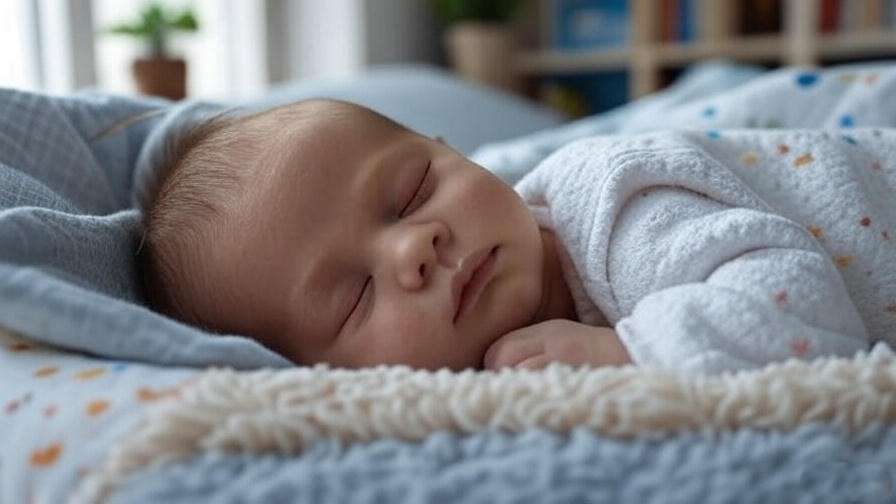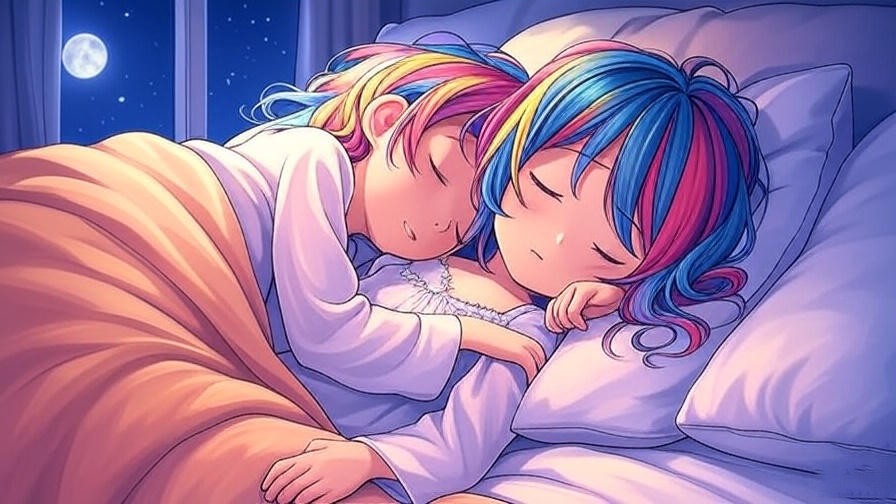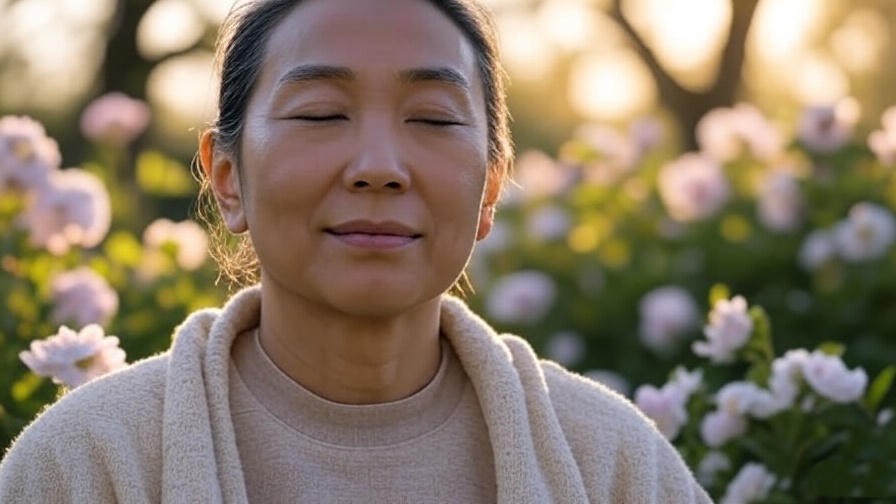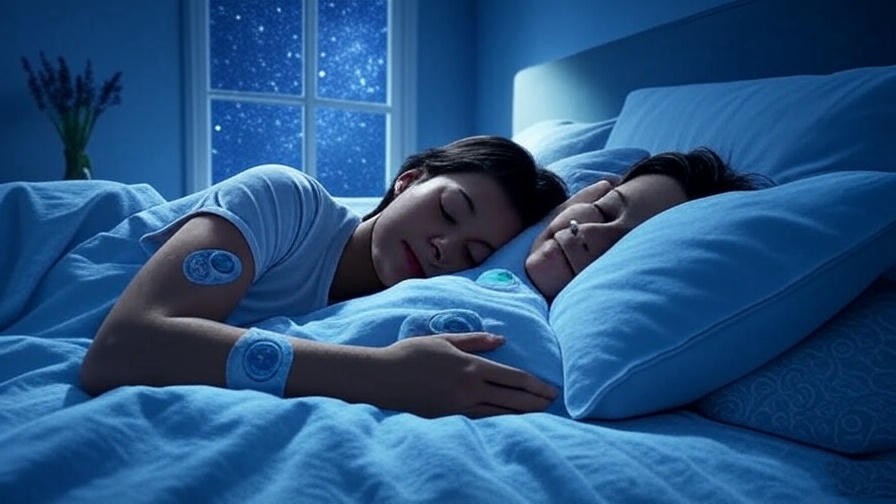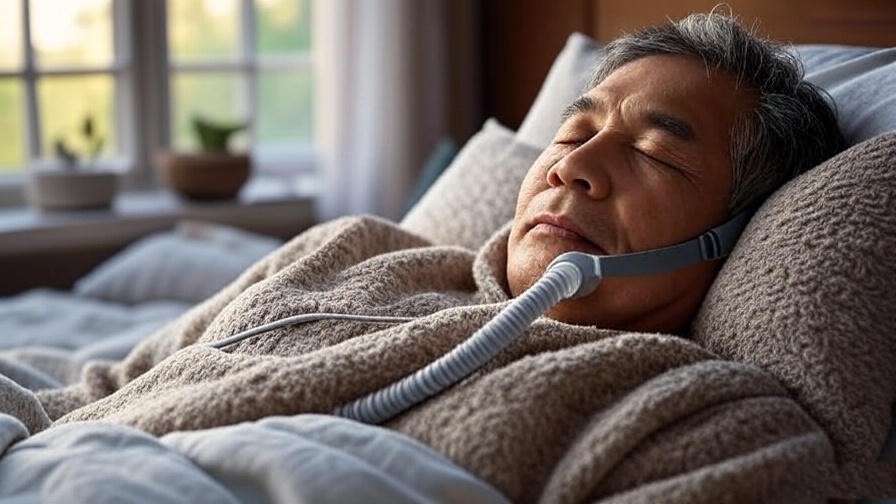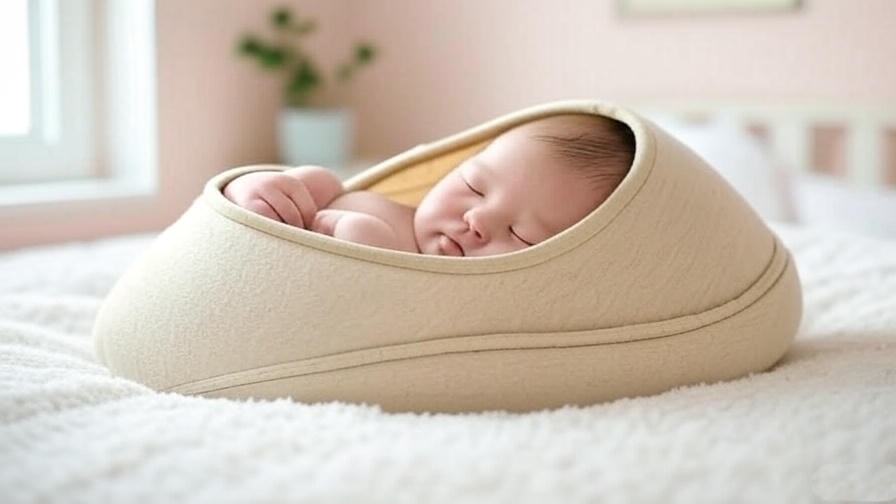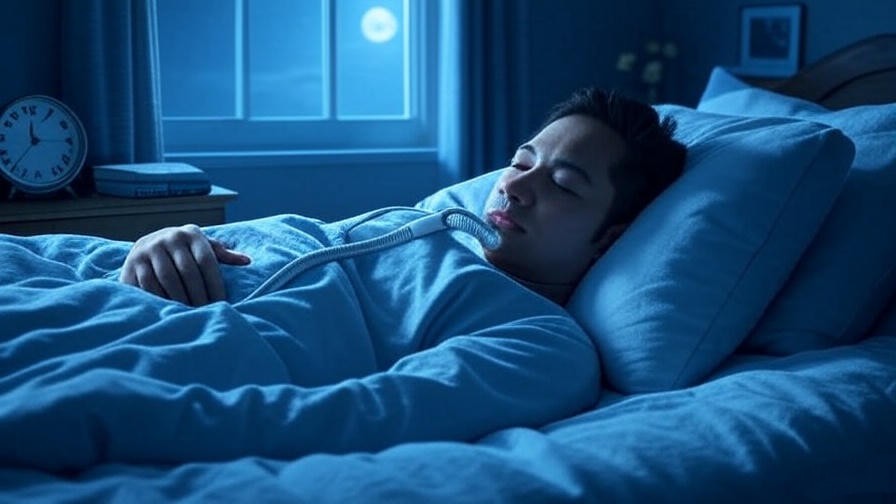Picture this: it’s the middle of the night, and you’re tiptoeing to check on your newborn, only to hear soft, heart-melting giggles drifting from the crib. Those newborn giggles in sleep are pure magic, but what do they mean? For new parents, these tiny bursts of joy spark curiosity and sometimes worry. Are they dreaming? Are they healthy? Understanding newborn giggles in sleep is more than just satisfying curiosity—it’s about ensuring your baby’s well-being and celebrating their growth. In this comprehensive guide, we’ll explore the science, significance, and practical tips behind these adorable sleep behaviors, blending expert insights with actionable advice to reassure and empower parents. By the end, you’ll see why these giggles are a beautiful sign of healthy development and how they connect to your baby’s emotional and neurological milestones.
What Are Newborn Giggles in Sleep?
Defining the Phenomenon
Newborn giggles in sleep are those soft, involuntary chuckles or coos that babies make while sleeping, often accompanied by a fleeting smile. Unlike the deliberate giggles you might hear when your baby is awake and interacting, these sleep giggles are spontaneous and typically occur during the first three months of life. Parents often describe them as brief, airy sounds—like a tiny laugh or a gentle squeak—that seem to bubble up out of nowhere. These giggles differ from other sleep behaviors, such as twitches, grimaces, or even cries, which can also occur during a newborn’s sleep cycles.
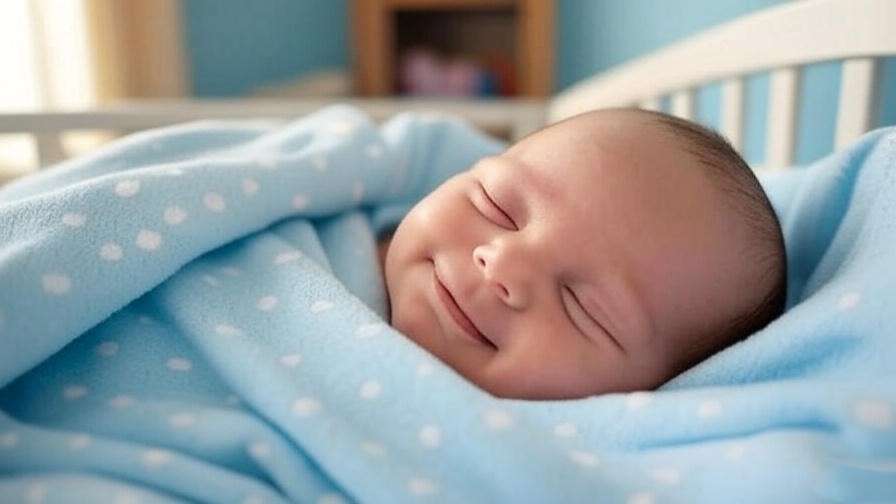
To paint a clearer picture, imagine your baby nestled in their crib, eyes closed, with a faint smile curling their lips as a soft giggle escapes. These moments are distinct from the more pronounced movements or sounds like limb jerks or fussing, which might indicate discomfort or a different sleep phase. Giggles in sleep are most common in newborns (0–3 months) but may continue sporadically as babies grow.
Why It Happens
The magic of newborn giggles in sleep lies in the brain’s activity during Rapid Eye Movement (REM) sleep, a critical phase for newborns. During REM sleep, the brain is highly active, processing emotions, forming neural connections, and supporting early development. Giggles are thought to stem from involuntary activations in the brainstem and limbic system—the areas responsible for reflexes and emotions. These regions “light up” during REM, triggering spontaneous smiles or giggles that don’t necessarily reflect conscious joy but rather the brain’s healthy functioning.
Dr. Sarah Thompson, a pediatric neurologist with over 15 years of experience, explains, “Newborn giggles in sleep are like a window into the brain’s early wiring. They show us that the nervous system is developing as it should, practicing emotional expressions even before babies can consciously control them.” This neurological activity is a reassuring sign that your baby’s brain is busy building the foundations for future emotional and cognitive milestones.
The Science Behind Newborn Giggles in Sleep
The Role of REM Sleep in Newborns
Newborns spend about 50% of their sleep time in REM sleep, compared to just 20% for adults. This high proportion of REM sleep is no accident—it’s essential for brain development. During REM, the brain consolidates memories, processes sensory experiences, and strengthens neural pathways. For newborns, who are rapidly adapting to the world, REM sleep is a powerhouse of growth, helping them process the sights, sounds, and sensations they encounter daily.
This active sleep phase is when you’re most likely to hear those delightful newborn giggles. The brain’s heightened activity during REM triggers involuntary movements, including smiles and giggles, as it tests and refines neural circuits. Research from the Journal of Pediatric Neurology (2023) suggests that these early expressions are linked to the maturation of the amygdala and other emotional centers, laying the groundwork for social behaviors like smiling and laughing when awake.
Neurological and Emotional Development
Newborn giggles in sleep are more than just cute—they’re a sign of a healthy, developing nervous system. The brainstem, which controls basic reflexes, and the limbic system, which governs emotions, work together to produce these spontaneous giggles. As the brain matures, these involuntary expressions pave the way for intentional social smiles, which typically emerge around 6–12 weeks. Studies, such as one published in Developmental Psychology (2022), show that babies who exhibit reflex smiles and giggles in sleep often reach social-emotional milestones—like responding to their parents’ faces—earlier than those who don’t.
These giggles also reflect the brain’s ability to regulate emotions, even in its earliest stages. The limbic system’s activity during sleep suggests that your baby is already practicing emotional responses, which will later translate into bonding and interaction. This is a critical step in forming secure attachments, a cornerstone of healthy emotional development.
Are Giggles a Response to Dreams?
One of the most common questions parents ask is, “Is my baby dreaming when they giggle in sleep?” The answer isn’t straightforward. Scientists are still unraveling whether newborns dream in the way adults do. While adults experience vivid dreams during REM sleep, newborns’ brains are less developed, and their “dreams” are likely more like sensory replays of their day—think sounds, touch, or warmth from feeding. These replays may trigger giggles, but they’re not the complex, story-like dreams of older children or adults.
Dr. Emily Chen, a developmental psychologist, notes, “We can’t say for sure that newborns dream, but their giggles during REM sleep suggest the brain is processing sensory and emotional input. It’s a sign of a healthy, active brain, even if it’s not dreaming in the traditional sense.” This perspective reassures parents that giggles are a normal part of sleep, not necessarily tied to specific dream content.
Why Newborn Giggles Are a Positive Sign
Indicators of Healthy Development
Newborn giggles in sleep are a heartwarming indicator that your baby’s brain is developing as it should. These spontaneous expressions show that the nervous system is functioning properly, with the brainstem and limbic system coordinating to produce reflex-like behaviors. According to a 2024 study in Pediatrics, infants who display reflex smiles and giggles in their first three months are more likely to achieve developmental milestones, such as social smiling and eye contact, on time. This correlation underscores the importance of these early behaviors as markers of neurological health.
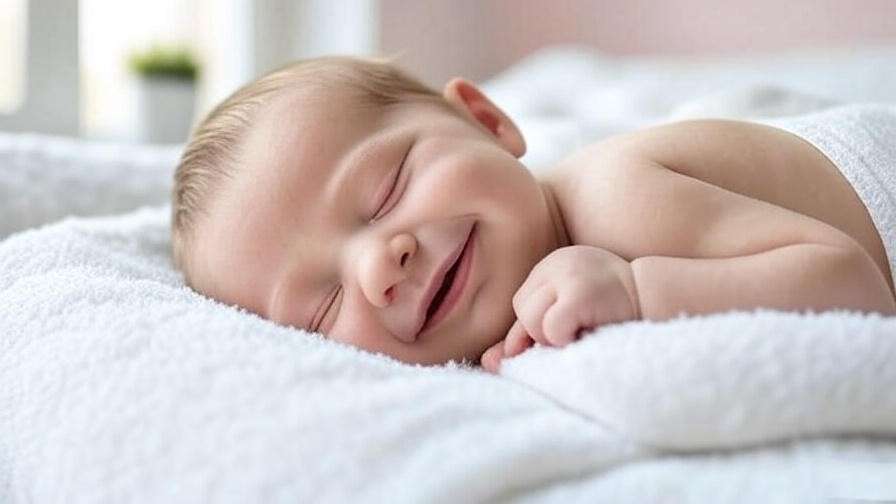
Beyond the brain, giggles also hint at emotional well-being. Even though they’re involuntary, they reflect the early activation of emotional centers, setting the stage for your baby to form strong emotional connections as they grow. For parents, observing these giggles can be a reassuring sign that their baby is thriving.
Emotional Connection and Bonding
While newborn giggles in sleep are neurological in origin, they play a role in strengthening the parent-infant bond. Seeing or hearing your baby giggle, even in sleep, evokes feelings of joy and connection, reinforcing your emotional tie. This aligns with attachment theory, which emphasizes the importance of early interactions for building secure relationships. When parents respond to their baby’s cues—whether awake or asleep—with warmth and attentiveness, it fosters a sense of safety and trust.
For example, when you hear your baby giggle in their crib, it might prompt you to smile, speak softly, or gently stroke their head (without waking them). These small interactions, even during sleep, contribute to a nurturing environment that supports emotional health. Over time, this bond translates into stronger social-emotional skills for your baby.
When to Be Concerned
While newborn giggles in sleep are typically a positive sign, it’s natural for parents to wonder if certain behaviors signal a problem. Most sleep behaviors, like occasional giggles, twitches, or brief pauses in breathing, are normal. However, there are a few red flags to watch for:
- Excessive twitching or jerking: If your baby’s movements seem intense or prolonged, it could indicate a neurological issue.
- Irregular breathing patterns: Brief pauses (less than 10 seconds) are normal, but longer pauses or gasping may warrant a pediatrician’s attention.
- Lack of smiling or giggling by 3 months: If your baby isn’t showing reflex smiles/giggles in sleep or social smiles when awake by this age, consult a doctor.
If you’re ever unsure, trust your instincts and reach out to a pediatrician. Dr. Thompson advises, “Parents know their babies best. If something feels off, a quick check with a healthcare provider can provide peace of mind.” Most of the time, giggles are a delightful sign of a healthy baby, but staying informed ensures you’re prepared for any concerns.
Tip Box: 3 Signs Your Newborn’s Sleep Behaviors Are Normal
- Occasional Giggles or Smiles: Brief chuckles or fleeting smiles during sleep are typical in the first 3 months.
- Mild Twitches or Movements: Gentle limb movements during REM sleep are part of healthy brain activity.
- Regular Breathing with Brief Pauses: Short pauses (under 10 seconds) are normal, especially in newborns.
How Parents Can Support Healthy Sleep and Development
Creating a Sleep-Conducive Environment
A calm, safe sleep environment is key to supporting your newborn’s REM sleep and overall development. Here are practical tips to optimize your baby’s sleep space:
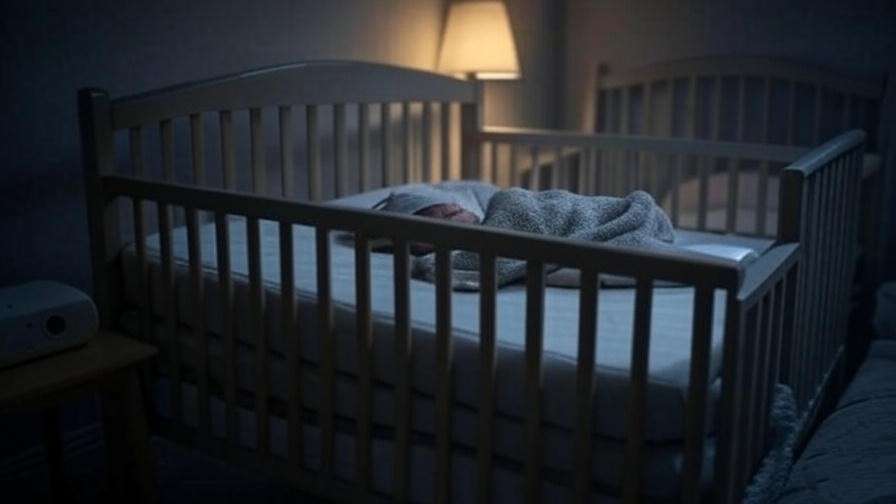
- Use dim lighting: Keep the room dark or use a soft nightlight to promote melatonin production and healthy sleep cycles.
- Incorporate white noise: A gentle hum mimics womb sounds, soothing your baby and encouraging longer REM periods.
- Follow safe sleep guidelines: Place your baby on their back on a firm mattress, free of loose bedding, to reduce the risk of SIDS and support restful sleep.
- Maintain a consistent temperature: Aim for 68–72°F (20–22°C) to keep your baby comfortable.
These steps not only enhance REM sleep—where giggles often occur—but also support overall brain development by ensuring uninterrupted rest.
Encouraging Emotional Bonding
While giggles in sleep are involuntary, your daytime interactions can enhance your baby’s emotional health, which may influence sleep behaviors. Try these bonding activities:
- Skin-to-skin contact: Hold your baby against your chest during feedings or quiet moments to foster security and emotional regulation.
- Talk or sing to your baby: Your voice is soothing and helps stimulate early language and emotional centers.
- Respond to cues: When your baby is awake, engage with their smiles or coos to reinforce emotional connections.
These interactions create a nurturing environment that supports the emotional development reflected in sleep giggles. A 2023 study in Child Development found that babies with frequent positive interactions during the day showed more stable sleep patterns and earlier social milestones.
Monitoring Sleep Patterns
Tracking your baby’s sleep behaviors can help you understand what’s normal and spot any changes. However, avoid over-analyzing, as this can increase parental anxiety. Consider these approaches:
- Keep a simple sleep journal: Note when giggles or other behaviors occur, along with sleep duration and wake times.
- Use a baby sleep app: Apps like Huckleberry or Baby Tracker can help you log patterns without stress.
- Observe without intervening: Resist the urge to wake your baby during giggles, as this disrupts healthy REM sleep.
Case Study: Sarah, a first-time mom, noticed her 2-month-old, Emma, giggling in sleep sporadically. Worried it might be abnormal, she started tracking Emma’s sleep using a journal. After establishing a consistent bedtime routine with white noise and dim lighting, Sarah noticed Emma’s giggles became more frequent, and her sleep cycles lengthened. Consulting her pediatrician confirmed that Emma’s giggles were a normal, healthy sign, easing Sarah’s concerns and boosting her confidence as a parent.
Common Myths About Newborn Giggles in Sleep
Myth 1: Giggles Mean Babies Are Dreaming of Funny Things
One of the most persistent myths is that newborn giggles in sleep mean your baby is dreaming of something funny, like a playful moment or a silly face. While it’s tempting to imagine your baby chuckling at a dreamy adventure, science suggests otherwise. Newborns’ brains are not yet developed enough to create complex, narrative-driven dreams like those of adults or older children. Instead, their giggles are involuntary reflexes triggered by neurological activity during REM sleep. These reflexes stem from the brainstem and limbic system, not from conscious humor or dream content.
Dr. Emily Chen, a developmental psychologist, clarifies, “Newborn giggles are more about the brain practicing emotional expressions than responding to specific dream scenarios. It’s a sign of a healthy, active nervous system, not a comedic dream.” Understanding this can help parents appreciate giggles for what they are—a natural part of development—without projecting adult-like interpretations.
Myth 2: All Babies Giggle in Their Sleep
Another common misconception is that every baby giggles in their sleep, and if yours doesn’t, something might be wrong. In reality, not all newborns giggle during sleep, and this variation is perfectly normal. Some babies may express reflex smiles or coos, while others might show different behaviors, like twitches or sighs. The absence of giggles doesn’t indicate a developmental issue, especially if your baby is meeting other milestones, such as social smiling when awake by 6–12 weeks.
A 2024 study in Pediatrics found that while reflex smiles and giggles are common, their frequency varies widely among healthy infants. Factors like temperament, sleep patterns, and individual neurological development all play a role. If you’re concerned about a lack of giggles or other developmental signs, consult your pediatrician for reassurance.
Myth 3: Giggles Are Always a Sign of Happiness
It’s easy to assume that newborn giggles in sleep mean your baby is happy, but the reality is more nuanced. These giggles are primarily neurological, driven by involuntary brain activity rather than conscious emotions like joy. That said, their presence is still a positive sign, as they reflect a healthy nervous system and the early foundations of emotional expression. As babies grow, these reflex giggles evolve into intentional laughs, signaling happiness and social engagement.
Dr. Sarah Thompson, a pediatric neurologist, notes, “While sleep giggles aren’t driven by happiness in the moment, they’re a stepping stone to the emotional expressions your baby will develop later. They’re a reassuring sign that the brain’s emotional centers are active.” This distinction helps parents understand the science while still cherishing the heartwarming nature of these moments.
Expert Insight: Dr. Rachel Patel, a pediatrician with 20 years of experience, adds, “Parents often worry when they don’t understand their baby’s behaviors. Knowing that sleep giggles are a normal, healthy reflex can ease those concerns and let parents enjoy these precious moments without overthinking.”
How Newborn Giggles Connect to Holistic Well-Being
Sleep as a Pillar of Infant Health
Newborn giggles in sleep are a small but meaningful piece of the larger puzzle of infant health. Sleep is a cornerstone of holistic well-being, supporting physical growth, cognitive development, and emotional regulation. During REM sleep, when giggles are most likely to occur, the brain is hard at work forming neural connections, processing sensory input, and laying the foundation for future learning and social skills. A 2023 study in Child Development highlights that infants with healthy sleep patterns—including ample REM sleep—show better emotional regulation and cognitive outcomes by toddlerhood.
By fostering healthy sleep, parents can support the neurological processes that produce giggles and other developmental milestones. This aligns with the broader mission of holistic well-being, which emphasizes nurturing the mind, body, and spirit in harmony. For newborns, quality sleep is a vital ingredient in this equation, and those delightful giggles are a sign that the process is working.
Parental Well-Being and Mindfulness
Newborn giggles in sleep don’t just benefit babies—they can also enhance parental well-being. Hearing your baby giggle, even in sleep, can spark joy and reduce the stress that often comes with new parenthood. These moments offer a chance for parents to practice mindfulness, staying present and appreciating their baby’s natural behaviors without worry. For example, instead of questioning whether giggles are “normal,” parents can savor them as a sign of their baby’s growth and vitality.
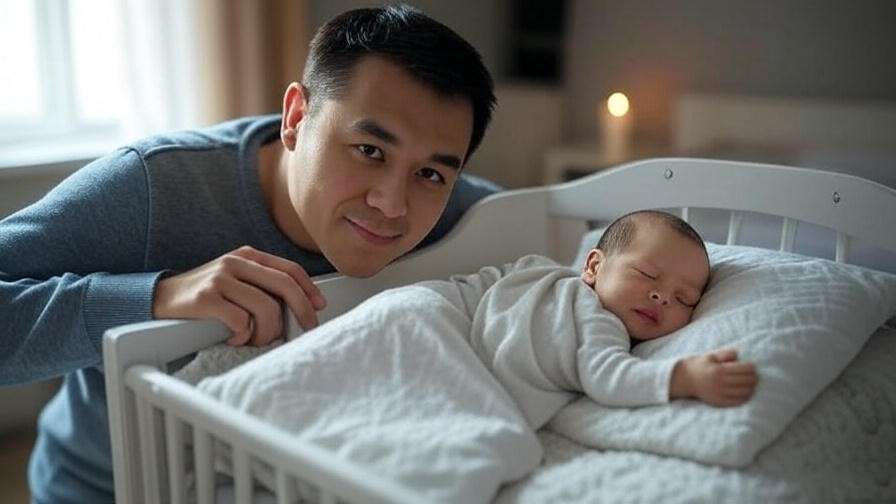
Mindfulness practices can amplify this sense of connection and calm. Simple habits, like taking a moment to breathe deeply while watching your sleeping baby or reflecting on their milestones, can ground you in the present. These practices align with the website’s focus on mindfulness and happiness, offering parents tools to navigate the challenges of early parenthood with confidence.
Tip Box: 5 Mindfulness Practices for New Parents
- Deep Breathing: Take 5 slow breaths while holding or watching your baby to center yourself.
- Gratitude Journaling: Write down one joyful moment, like a sleep giggle, each day.
- Mindful Observation: Spend a minute observing your baby’s sleep behaviors without judgment.
- Positive Affirmations: Remind yourself, “My baby is growing and thriving,” to ease worries.
- Sensory Connection: Focus on the warmth or softness of your baby during feedings to stay present.
FAQs About Newborn Giggles in Sleep
Are Newborn Giggles in Sleep the Same as Daytime Smiles?
No, newborn giggles in sleep are reflex-based, driven by neurological activity during REM sleep, while daytime smiles (starting around 6–12 weeks) are social and intentional, responding to stimuli like your face or voice. Both are positive signs, but sleep giggles are involuntary, while awake smiles show emerging social awareness.
Should I Wake My Baby If They’re Giggling in Sleep?
Avoid waking your baby during giggles, as this disrupts REM sleep, which is crucial for brain development. Let them sleep through these moments, as they’re a natural part of healthy sleep cycles. If you’re concerned about unusual behaviors, observe quietly and consult a pediatrician if needed.
How Can I Tell If My Baby’s Giggles Are Normal?
Most newborn giggles in sleep are normal, especially if they’re brief and occur alongside other healthy behaviors like regular feeding and weight gain. Watch for red flags like excessive twitching or irregular breathing, and contact a pediatrician if you’re unsure. Generally, giggles are a positive sign of neurological health.
Do Giggles in Sleep Mean My Baby Is Happy?
While sleep giggles don’t reflect conscious happiness, they indicate a healthy nervous system and the early development of emotional centers. They’re a precursor to the joyful, intentional laughs your baby will share when awake, making them a hopeful sign of emotional growth.
Can I Encourage More Giggles in My Baby’s Sleep?
You can’t directly cause sleep giggles, as they’re involuntary, but fostering a calm sleep environment and strong emotional bonding during the day can support healthy REM sleep and neurological development. Practices like skin-to-skin contact and a consistent bedtime routine may indirectly enhance these behaviors.
Conclusion
Newborn giggles in sleep are more than just adorable—they’re a window into your baby’s healthy development. These spontaneous chuckles, rooted in REM sleep and neurological activity, signal that your baby’s brain is building the foundations for emotional and social growth. By understanding the science behind these giggles, debunking common myths, and creating a nurturing sleep environment, parents can feel confident and reassured. These tiny moments of joy connect to the broader picture of holistic well-being, supporting both your baby’s growth and your own peace of mind as a parent.
Take a moment to observe your baby’s sleep behaviors with curiosity and wonder, not worry. If you have concerns, don’t hesitate to consult a pediatrician for personalized guidance. We’d love to hear your experiences—have you noticed your newborn giggling in sleep? Share your stories in the comments or on social media to connect with other parents and celebrate these precious milestones. For more insights on infant sleep, mindfulness, and holistic well-being, explore our related articles on newborn sleep cycles and mindful parenting.

